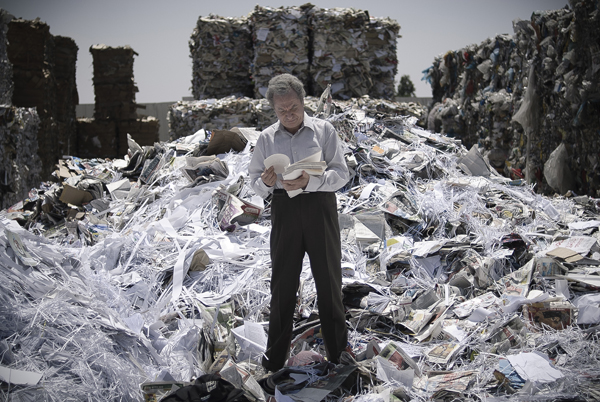
Schlomo Bar Aba in FOOTNOTE (Ren Mendelson/Sony Pictures Classics)
Academic politics is said to be the most vicious because the stakes are so low. In the Academy Award-nominated Footnote, that conflict takes on the tragicomic Biblical proportions of father vs. son.
An officious narrator sets a facetious anthropological tone throughout as if this were an objective study of the Talmud Department of the Hebrew University in Jerusalem, where scholars delve into two thousand years of rabbinic law. Two very different professors, a father and a son, are compared and contrasted. Their behavior is examined at two ceremonies conferring academic honors, one at the opening and the other at the conclusion of the film, and through their reactions to two letters, one unintentionally misdirected at the beginning and the other intentionally misattributed midway through.
The father is Eliezer Shkolnik (Shlomo Bar Aba, a well-known comic actor in Israel with a Jack Guilford-like, sad-sack expressiveness). His adult son is Uriel Shkolnik (Lior Ashkenazi, unrecognizable with a paunch and bushy beard from the sexy Mossad agent he played to international attention in 2004’s Walk on Water). Even within the same academic specialty, they are opposites in their professional pursuits and personal habits. The father, a secular philologist, treats the physical text like an archaeologist to be dated and identified. He spent 30 years of drudgery working carefully alone to verify the source of a particular chapter of the Talmud. The religiously observant son is concerned with the meaning of the words and makes them accessible to the general public in best-selling books. (The teenage grandson stands on neutral ground between them, with his yarmulke dangling precariously from his head and eyes rolling at reading books when he’d rather be watching TV.)
Eliezer is a silent husband to his long-suffering wife Yehudit (Alisa Rosen), who sleeps in a separate bedroom, while the son takes companionable advice from his wife Dikla (Alma Zak). The father walks; the son drives. Uriel, who was a bright student early on, is flexibly easy-going, and, in the beginning, publicly claims his father as the personal example that inspired his award-winning career, even if he doesn’t feel so privately. For the rigid father, each slight looms large. He even resents the ubiquitous security at every institutional entrance. Because Eliezer’s meticulous evidence proof was overshadowed by a colleague’s chance discovery, his achievement was condemned to a footnote. That oily colleague, Yehuda Grossman (Micah Lewesohn), rode his one landmark achievement to become Eliezer’s bureaucratic nemesis at the university.
Within these simmering father and son resentments, an announcement comes from the Israeli Ministry of Education that will shift the balance. (The new trailer gives away the key spoiler that I won’t.) For all their bombast, the real-world dimensions of the issues at stake in their center of the universe are hilariously represented when a department staff meeting squeezes into a space that seems like the stateroom scene from the Marx Brothers’ A Night at the Opera. (I especially chuckled at the satirical representation of my second cousin in that very same Talmud department.)
These forces climactically clash in a negotiated compromise that puts each professor’s personality and expertise in sharp relief that is both comic and poignant. The son ghostwrites a document, the colleague takes the credit, and the father suspiciously scrutinizes it—parsing individual words, phrases, and punctuation—until he’s sure that he has identified the true provenance. Without benefit of Wikipedia or a Google search, academic research has never been shown with such visual verve. The chapter sardonically called “The Revenge of Professor Shkolnik” is enthusiastically accompanied by Amit Poznansky’s energetic, klezmer-like score with a joyous violin and clarinet.
Writer/director Joseph Cedar has expanded the father/son issues since his debut Time of Favor (2001) to broader considerations of Israeli identity. Footnote concludes with the father trying to find his place in modern Israel as he fumbles through a hall of culture where each door opens onto different dancers and performers he finds confusing and foreign. By the time father and son together rise for the national anthem, they have each gone through role reversals at home and in public, and maybe these scholars, and the audience, have even learned something new.

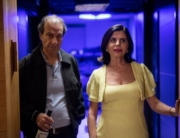
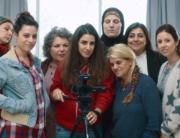
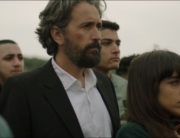

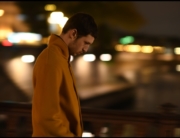
Leave A Comment